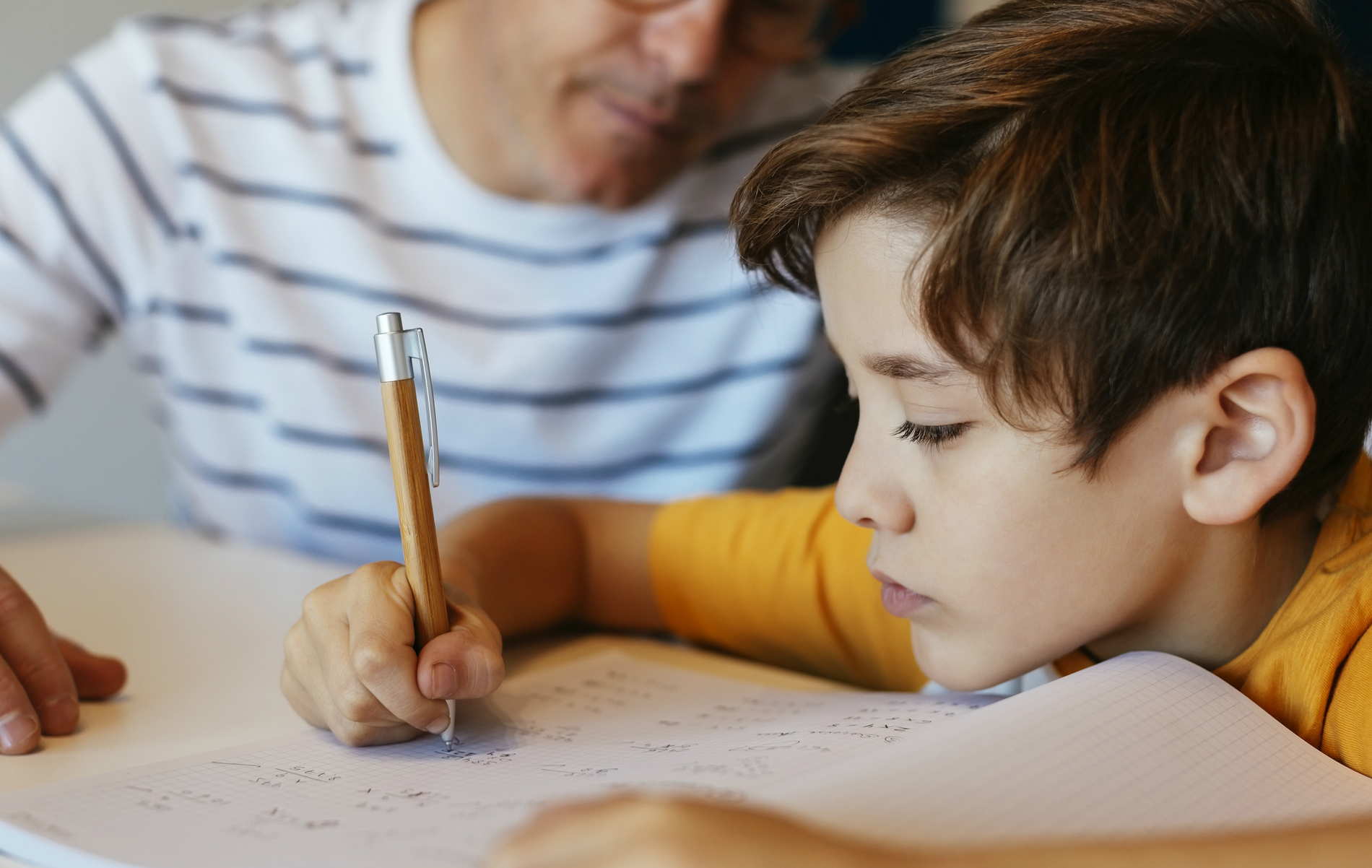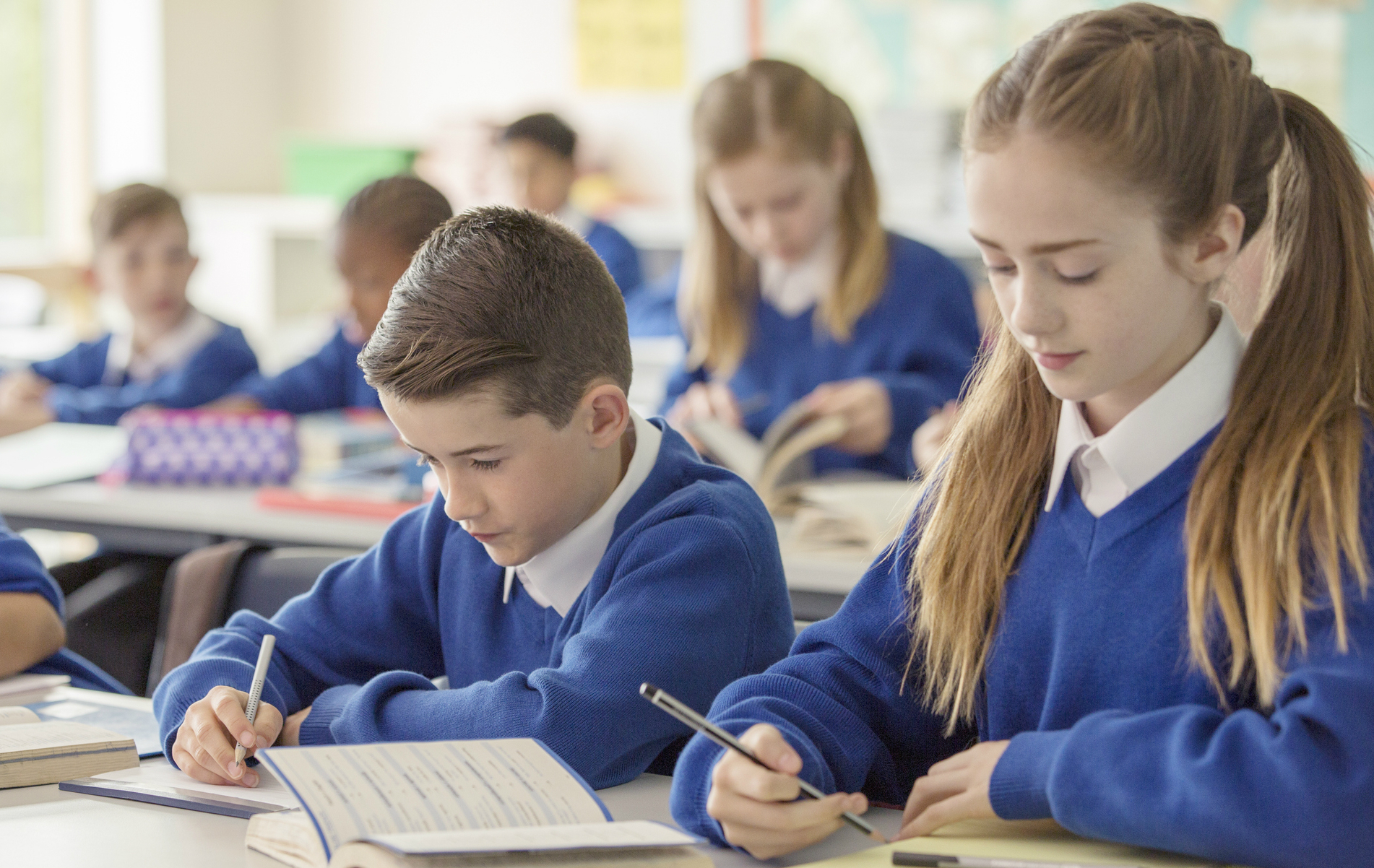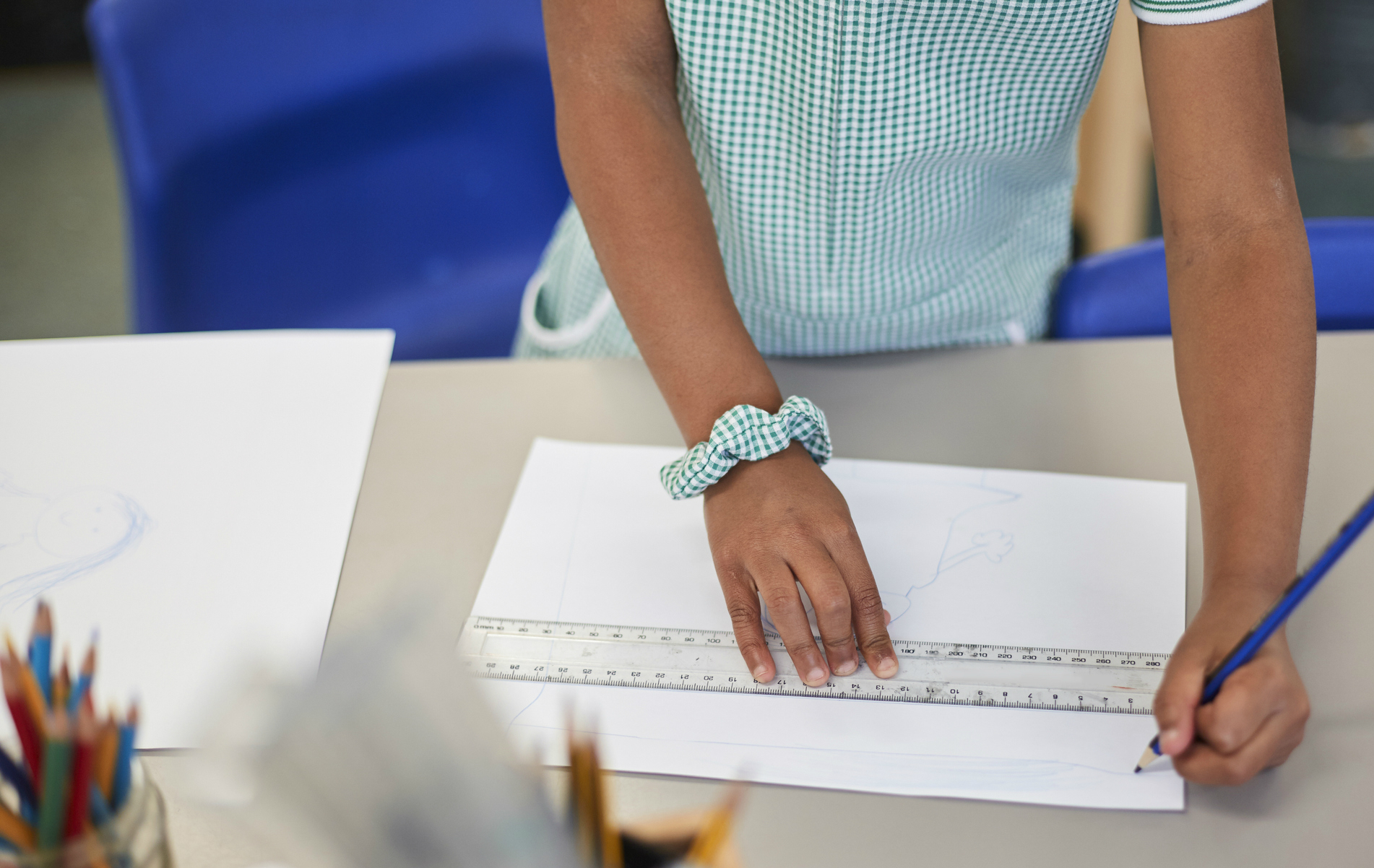A parent's guide to Year 2 and Year 6 SATs papers
From why your child is sitting them, to what their results mean

SATs papers are the statutory tests taken by primary school children to test their knowledge of the National Curriculum, as well as monitor the school's progress as a whole.
Your child will sit two sets of SATs exams: one, in Key Stage 1, when they're in Year 2 and around 6-7 years old, and a second in Key Stage 2, when they're in Year 6, and around 10-11 years old.
Prior to 2008, your child would have also completed SATs papers in Key Stage 3, when they were in Year 9 and around 13-14 years old, but these exams were scrapped by the government in favour of a school-by-school report card to give parents richer information, so this third set of tests is no longer completed.
SATs are taken during the summer school term, generally in May of each year.
Exam stress: Tips on how to help your child keep calm during exam time
Why does my child have to take SATs papers?
SATs are taken to provide information about your child's progress, in comparison to children of the same age, on a national basis.
The results are used to verify that schools are teaching their pupils the key skills in core subjects at these early stages, thereby ensuring that every child is given the tools they need to be successful throughout their education.
Parenting advice, hot topics, best buys and family finance tips delivered straight to your inbox.
However, the government is keen to stress that SATs are not qualifications, and don't affect your child's future option at school.

What do SATs papers test my child on?
In both Year 2 and Year 6, your child's SATs test their grasp of basic English and mathematics.
The English tests focus on grammar, spelling, punctuation and comprehension, whilst mathematics questions test arithmetic and reasoning.
In each year, they will sit six papers, two for each of the following subjects:
- English grammar, punctuation and spelling
- English reading
- Mathematics
Around the same time, they may also undergo a phonics screening. A sample of approximately 9,500 pupils (5 pupils at around 1,900 schools across the country) will also be randomly selected to undergo a science sampling test, although the results of this will simply be used for national data and will not be returned to pupils or used in school performance tables.
What do my child's SATs results mean?
2016 was the first year that SATs results were given in scaled scores rather than levels, as was previously the case. Your child's raw results (i.e., the number of marks they actually achieved) will be converted into a scaled result, where a score of 100 means that they are working at the expected standard.
The numbers below show an example of the 'raw scores' your child would need, to reach the 100 scaled score level in each subject area needed for their age group.
Year 2 SATs results English grammar, punctuation and spelling: 25 out of 40 English reading: 22 out of 40 Mathematics: 37 out of 60
A score below 100 indicates that your child may need extra support, whilst a score of above 100 suggests the child is working at a higher level is typical for their age group. The maximum score possible is 115, and the minimum is 85.
In this age group, papers are marked through teacher assessment, so your child's scores informed by the teacher's observations and your child's classwork as well as their results.
The numbers below show an example of the 'raw scores' your child would need, to reach the 100 scaled score level in each subject area needed for their age group.

Year 6 SATs results English grammar, punctuation and spelling: 43 out of 70 English reading: 21 out of 50 Mathematics: 60 out of 110
A score below 100 indicated that your child has met the expected standard in each test, whilst a scaled score of 99 or less means they haven't. The maximum possible score is 120, and the minimum in 80.
In this age group, papers are marked externally, without the input of a familiar teacher, so their results are based entirely on their exam schools.
They may also be given an alphabetic code, which translates as follows:
AS: the expected standard has been achieved NS: the expected standard has not been achieved A: your child was absent from one or more of the test papers B: your child is working below the level assessed by KS2 SATs M: your child missed the test T: your child is working at the level of the tests but is unable to access them (for instance, if they have special educational needs)
Schools can choose which data they release to parents, so, for instance, you may receive your child's scaled score, or a code, but not be given their raw score.
How can I prepare my child for their SATs?
Teachers should be doing most of the work when it comes to preparing your child for SATs, but if they do become the subject of discussion at home, you can reassure your child that they should not be worried about taking the tests.
If you wish to do a little extra 'revision' at home, you can play mental maths games or practice spelling, and read with your child to aid their comprehension. Past papers are available on the GOV.UK website, should you wish to read them yourself, or run through a couple of questions with your child. Some schools also offer extra lessons in the run-up to the tests.
However, whilst you should keep the dialogue around SATs open in case your child has any concerns, you should not put any undue pressure on them around the time of the exams. Even if they end up with a lower score than expected, it will not have a negative impact on their prospects.
The future of SATs papers
Recently, there has been pressure on the government to scrap the controversial exams for the younger age group, after many parents reported that their children were unnecessarily stressed over the assessments.
In March 2017, Education Secretary Justine Greening said: 'The government has reformed the primary school system to make sure children can master the basics of literacy and numeracy so they get the knowledge and skills they need to succeed in later life.'
'Now we want to build on that by developing a stable assessment system that helps children learn, while freeing up teachers to do what they do best - supporting children to fulfil their potential.'
Trusted, informative, and empathetic – GoodToKnow is the ultimate online destination for parents. At GoodtoKnow, our mission is 'simple': we're trying to make sense of parenthood. On the site, you'll find everything you need for a happy, healthy family life. Our huge archive of content includes more than 18,000 articles and 1,500 how-to videos. These include expert-backed advice features on parenting, dealing with relationship changes after having a baby, self-care for mums and managing your family finances. We also feature tried-and-tested product reviews and buying recommendations for every stage of family life - from prams and Moses baskets to birthday gifts and top toys.